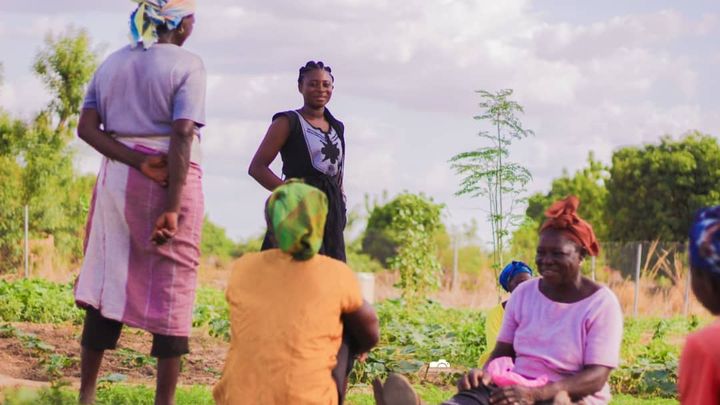
Support Indigenous Women in Ghana
Donation protected
In the village of Nandom, Ghana a small group of indigenous women, a collective of farmers, artisans, and ecologists are working to create a more sustainable future for their homeland. Their plan is to create a cooperative center where women from the community can grow, produce, and process indigenous foods. The center will provide a place for women to share their unique agricultural and cultural knowledge as well as turn raw materials into finished products that appeal to consumers within the community and beyond.
Like much of Ghana, Nandom has been deeply effected by the extractive practices of industrial corporations. Along with the environmental degradation caused by the large agricultural industry, foreign monopolies on seeds, land, and labor, leave the women of Nandom with little autonomy or choice. Women make up the majority of farmworkers in Ghana, yet have no place in the decision-making processes that directly affect their communities.
In response to these challenges the women of Nandom have come together with a plan for increased self-sufficiency, and empowerment. The center allows women to use their traditional farming practices to preserve their homeland finished products and learning valuable economic, environmental, and cultural skills.
- Environmental Autonomy: The center will allow women to learn and pass down their traditional farming practices and agroecological knowledge. Making profits from their own raw products gives them a voice in controlling environmental standards to preserve and restore their communities.
- Economic Empowerment: Having a place to process their own raw materials into finished products allows women of Nandom to earn capital, increasing their access to opportunities that benefit not only themselves and their families but the wider community as well. Women will be able to learn and share valuable industry skills that will help them do business more effectively.
- Collective Ownership: The center will be a collective where women can create capital through partnership and collaboration and reinvest it in the community. The cooperative model gives each woman a stake in the success of the center and a voice in decisions that impact their land and people.
From the last fundraising efforts, we were able to purchase land for this project as well as the beginnings of the physical community center. Additionally, your funds were used to provide COVID relief such as PPE, tests, sanitization, and food distribution. With your help now, we will be able to continue watering the seeds that we have planted for this vision to blossom.
If you want to learn more about our vision, visit our website here.
Organizer
Sabina Moss-Haaren
Organizer
New Orleans, LA